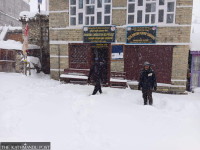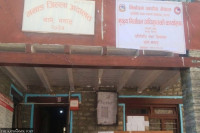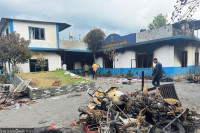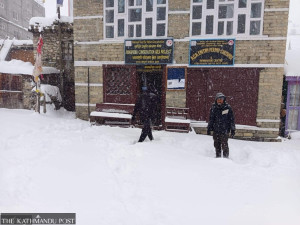Gandaki Province
Pokhara ward office settles attempted rape case with local mediation
Legal practitioners and rights activists criticise the participation of elected representatives in sealing such settlements.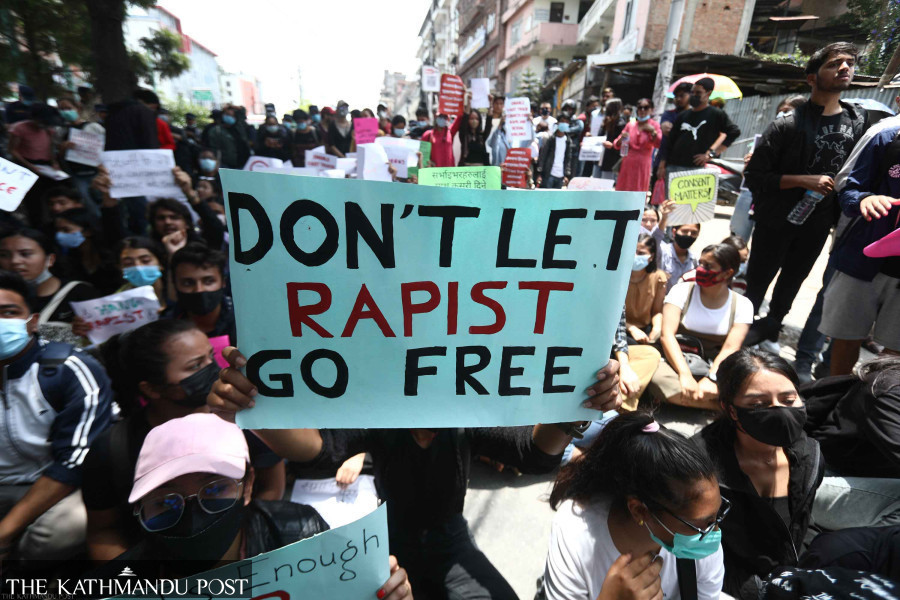
Deepak Pariyar
In a deeply shocking incident in Pokhara, officials from ward 29 have arranged a local settlement for a man accused of attempting to rape a minor.
The accused was asked to do up and down 25 times as an apology and was compelled to bow at the victim’s feet. People and rights activists raise questions regarding the actions for their legality and morality.
According to the victim’s family, the incident occurred at about 2 am on Wednesday, when the 30-year-old man entered the girl’s room through a window. Intoxicated, he allegedly pulled the mosquito net and attempted to assault the girl, who awoke, screamed, and when she turned on the light, saw the perpetrator.
The man fled, leaving his mobile phone at the site. The next day, the local settlement reform committee was informed. The committee demanded a verbal apology, drew up papers, and closed the case locally, without involving the police.
Unhappy with the committee's action, the victim’s relatives went to the house of the ward chairperson, Sriprasad Gurung, on Thursday. Gurung, together with the local tole development committee, women’s group, community leaders, the accused, and the victim's family, held a meeting. With the presence of ward secretary, the group coerced the accused to perform ups and downs 25 times and bow at the minor’s feet—after which the settlement was declared.
Under country’s Penal Code 2017, attempting rape (especially involving a girl aged between 10 and 14) can lead to imprisonment of 18-20 years. If convicted, the accused could face nine to ten years in prison.
Crucially, in cases where the punishment is more than three years, the law prohibits settlement out-of-court, and local bodies have no authority to mediate such cases.
Ward chief Gurung defended the case settlement saying, “We asked the man to apologise and pledged that such conduct must never occur again. Since the victim also gave forgiveness, we agreed to a settlement.”
He added, “Had real rape occurred, legal action would have been unavoidable. We simply coordinated locally; the victim’s family was free to decide. If they remain dissatisfied, the legal avenue is open.”
Ward secretary Durga Neupane likewise claimed there was no pressure on the victim’s family. “They took into account the boy’s family situation. The girl is still studying, under exam stress. A full legal case would involve too much strain, so they opted for settlement,” Neupane said.
Legal practitioners and rights activists criticise the participation of elected representatives in sealing such settlements. “Attempted rape is a serious crime. Mediation in such cases can neither ensure justice nor guarantee the safety of the child,” said advocate Kunjani Pariyar. “In legal provisions, those who facilitate such settlements can face imprisonment of up to three years and fines of up to thirty thousand rupees. If a public official is involved, additional punishment of six months applies.”
This case raises stark questions about how serious crimes against minors are handled at the community level in the country, despite the legal reforms intended to protect children.




 18.12°C Kathmandu
18.12°C Kathmandu.jpg)
